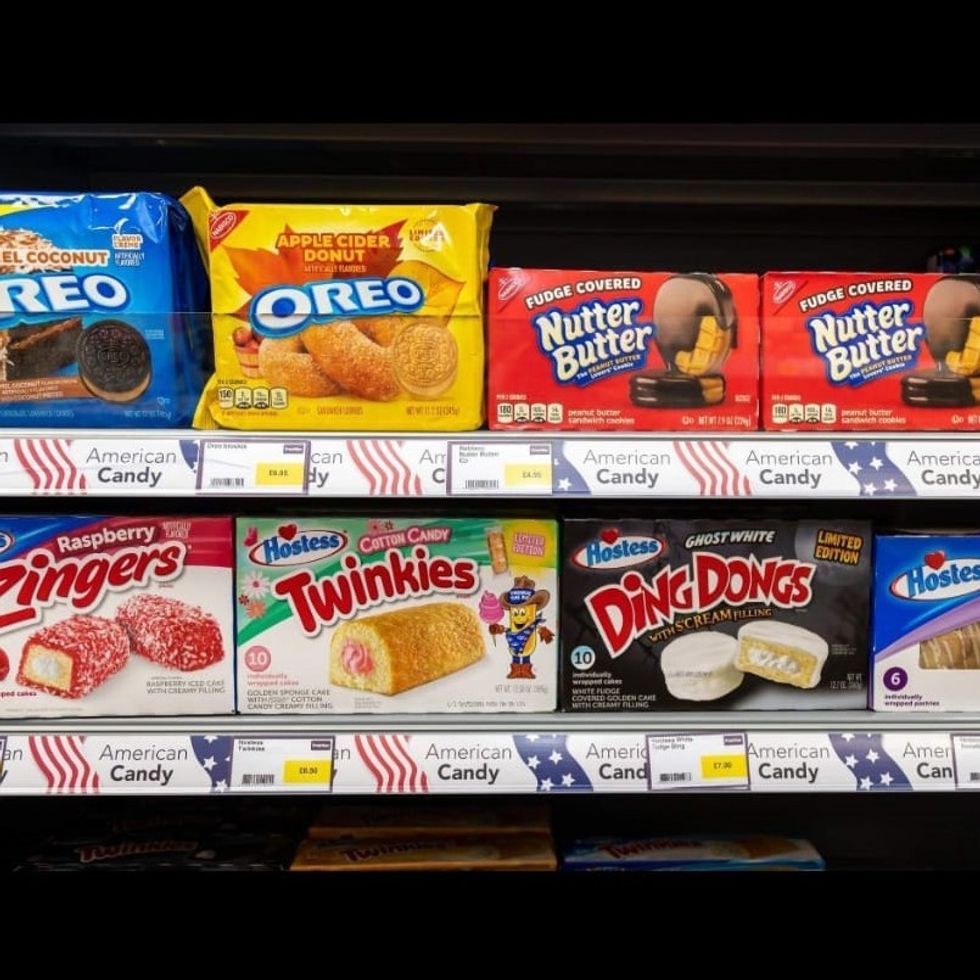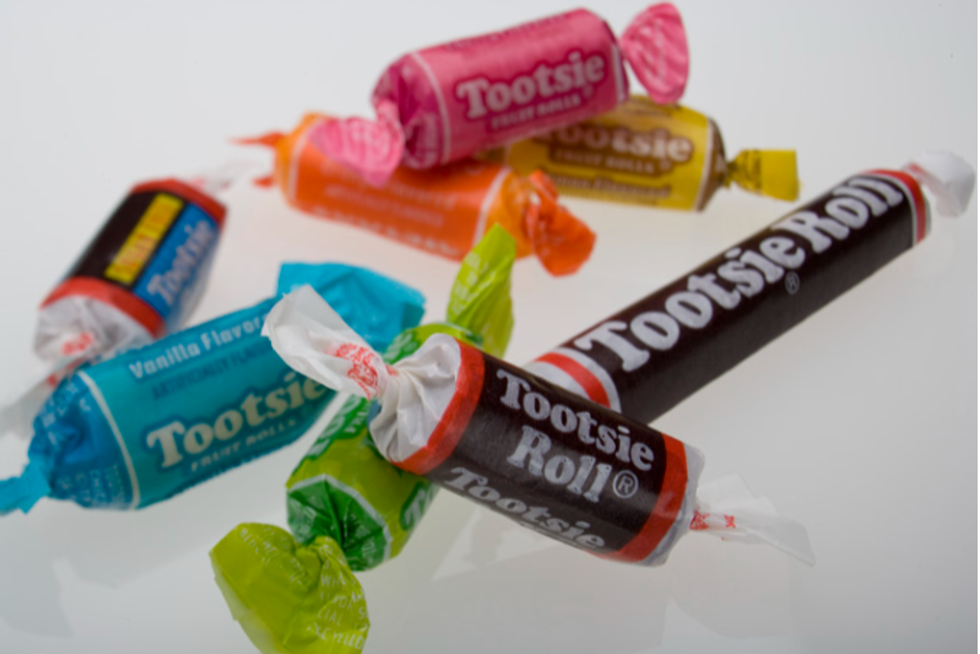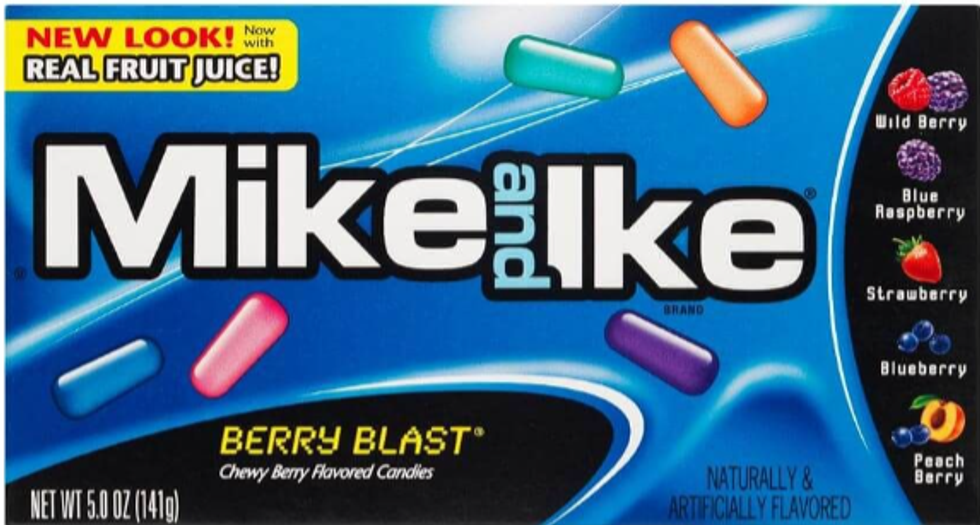Be it crisps, confectionery, breakfast cereals or soft drinks- Britons lately seem to be smitten by American range of products and are thronging in large numbers to the stores that sell such a range.
Brits always had a sweet tooth and a special sweet spot for candies and chocolates from across the pond. The liking has only spiked in the past couple of years due to increasingly better availability in many stores across the country.
Imtiyaz Mamode, whose Premier store in Gosport, Hampshire, is known for stocking a wide range of American products, agrees that demand has increased in recent years though it was always there.
“The liking was there for a long time but it was really hard to get such products for people. Some used to buy from eBay or Amazon but the prices were extremely high. We started stocking the products and kept the margin low and eventually, basket value increased. The demand was always there but there was a gap in the market so we just tried fulfilling the gap and it worked very well for us,” Mamode told Asian Trader.
Amrit Singh of H & Jodies Nisa Local in Birmingham feels that demand for American range of confectioneries and snacks has grown consistently, year by year.
Confectionery wholesaler Hancocks too agrees with the retailers’ opinion.
“As more new and exciting brands are introduced to UK shoppers, the more they want to try more. The exciting flavours and sour tastes are certainly popular,” Chris Smith, Marketing Communications Manager at Hancocks, told Asian Trader.
Hancocks has been stocking American brands for over 20 years. Over the period, the wholesaler has introduced some exciting new brands as well as ones in the UK market, Smith said.
Why so popular
One of the major reasons for the rising popularity of American confectionery and other products is taste.
For example, the average bar of British chocolate focuses more on cocoa than sugar, which provides the rich, creamy texture in Dairy Milk or Galaxy. But Hershey's bars from the US have less cocoa and more sugar, which means they have a sweeter taste.
Mamode too echoed a similar opinion when he pointed out how Pepsi in the UK tastes different from the one available in the US.
“It is not just about sugar but the taste sometimes for some products is completely different than the UK one. Customers who want American products are happy to pay higher prices, sometimes almost double as compared to their UK counterparts,” he said, adding that such customers “don’t care about the price” even if it is a pound or so extra.

Peanut butter in the UK lacks the dense flavours associated with American brands such as Reese’s, said Mamode, citing popular customer feedback. Once hooked, people tend to form strong affiliation for the American range and price does not come into picture.
Apart from taste, a wider range in the US too seems to entice Britons a lot.
Singh from Nisa Local pointed out that the US market enjoys far more range of flavours and cross-brand collaborations as compared to what we have.
“In America, they seem to have more flavours of everything. All sorts of different cross cross brand collaborations keep happening which leads to a wider range of flavours- something which appeals to Britons a lot,” Singh told Asian Trader, adding that “what we got in compared to what they have are two different worlds apart”.
Apart from taste and range, American products also quite noticeably stand out owing to its packaging and shape. Like, candies are bigger than ones from the UK hence more “photogenic”- a fact which makes them social media stars.
Social media is playing a very pivotal role here, pushing the popularity of such ranges with its never-ending hashtags and trends. It ramps up the desirability of certain products, due to which shoppers, especially millennials and Gen Z, leave no stone unturned to find a shop that stocks them.
Bestsellers and Suppliers
Majorly, candies, chocolates, breakfast cereals, crisps and soft drinks from US are in huge demand.
“Coca Cola vanilla is our best selling line. People wait for the product to be available as the product usually remains out of stock. Some ask us to pre-book five or four cases for them whenever it gets out of stock,” Mamode said.
Fanta Blueberry is another very sought after product at his store as people, who like it, are often on the lookout for what they like to call it as “rare gem”.
Both Mamode and Singh named Jolly Rancher hard candies as their bestselling line. Hershey's, Reese’s, Faygo, Jelly Belly, Calypso, Airheads and Mike and Ike also enjoy a huge fan following.
American Crisp brand Cheetos Flamin Hot, despite being hot and spicy, is another huge hit. So is Takis, a hot and spicy Mexican brand.
Warheads in extreme sour flavours and Sour Punch are also gaining popularity, revealed Hancocks.
Finding a good supplier is the key here since the supply is extremely patchy and comes with a high price tag. A great place to start and exploring are wholesalers American Fizz and Sweet and Glory.

Wholesaler Hancocks also stocks a wide range of American brands, including many that are exclusive to the wholesaler including Warheads, Sour Punch, Red Vines and Tootsie confectionery brands along with the regular popular ones.
“All American ranges, including sweets, candy and chocolate, drinks and snacks, are compliant with UK food legislation and products are screened and verified by Hancocks’ own in-house technical experts,” Smith said.
Other places to procure American range of confectionery and snacks are London-based Appleton Sweets, Wholesale Sweets and Americatessen.
Challenges
The main challenge in the American line is inconsistent availability of stock, especially of the popular ones. Best selling products in this segment often go out of stock very often and that too for weeks.
Retailer Singh also claimed that inconsistencies in the supply chain is a major issue here.
“As there's no trade deal, there's no real mass purchasing available. Whatever is available, it seems to be in small batches. So if anything does really work well and gets sold out, it takes a couple of weeks, sometimes three weeks to stock it again. At the same time, it's hard to predict what's going to be popular,” Singh said.

Mamode too admits that getting consistent supply is a huge problem. The retailer has even tried importing directly from the US but it comes with a huge container cost, not to forget extra duty and paperwork, eventually making it a cumbersome and expensive project. He, however, hopes to import directly from the US in the next couple of years.
Importing too has its own challenges as buying in bulk calls for a huge warehouse space.
Wrap
American ranges are more expensive, though price is hardly a factor for the ardent fans who are ready to pay double the amount as compared to British counterparts. Surge in demand and inconsistent supply makes it an uncertain yet still a lucrative segment.
Like Singh and Mamode, there are many enterprising retailers who have managed to make foreign lines of products as their stores’ USP.
“American confectionery will play an important role in the business over the coming years with buyers constantly looking for new and exciting ranges they can bring to the UK,” Smith from Hancocks said.
A shop, that sells American confectionery and snacks, has its aisle is filled with products in all sizes and shapes from Twinkies to Tootsie Rolls. It, thereby, opens a new world for customers, who are most likely to turn into loyal ones as they will keep returning for their favourite kick.






